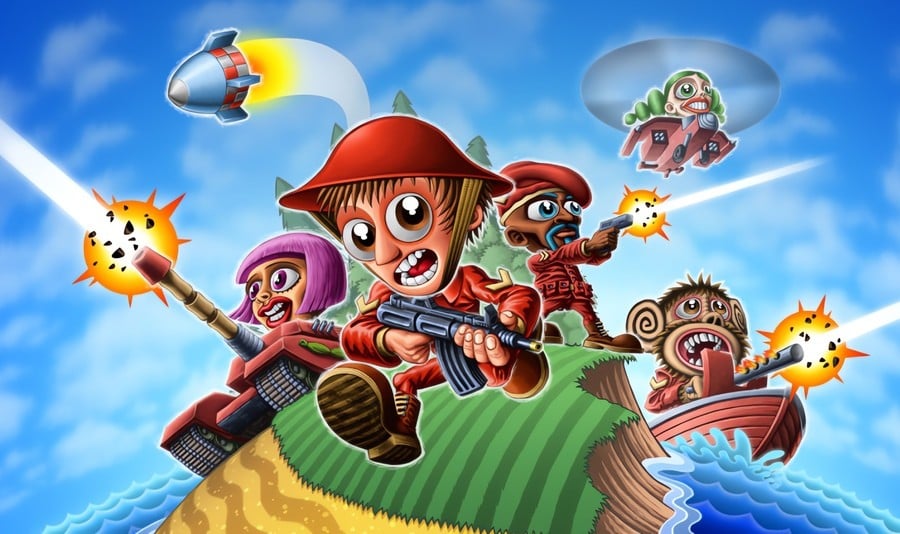
Ste and John Pickford have been making video games for decades, starting with humble home micros like the ZX Spectrum and Commodore 64 before graduating to the NES and SNES as the '90s dawned. Such was the prestigious talent of these skilful siblings that their company Zippo Games was purchased by Rare and rechristened Rare Manchester in 1990, and later on at Software Creations, the pair would work on Ken Griffey, Jr. Presents Major League Baseball — notable for being the first Nintendo of America game to be developed by a third-party from the ground up.
Since then, other critically acclaimed hits have followed, including Plok, Wetrix and Future Tactics: The Uprising. In 2005, the Pickford Brothers went independent and formed Zee-3. As well as providing consultancy services to other studios, Ste and John continue to produce their own games — the devilishly addictive and BAFTA-nominated Magnetic Billiards: Blueprint being possibly the most famous.
When this interview was conducted back in 2014, the duo were planning to revisit their very first indie game, 2006's PC strategy title Naked War, with the aim of bringing it to iOS in the near future. That sadly never came to pass (although it does explain why some of the questions below reference that port).
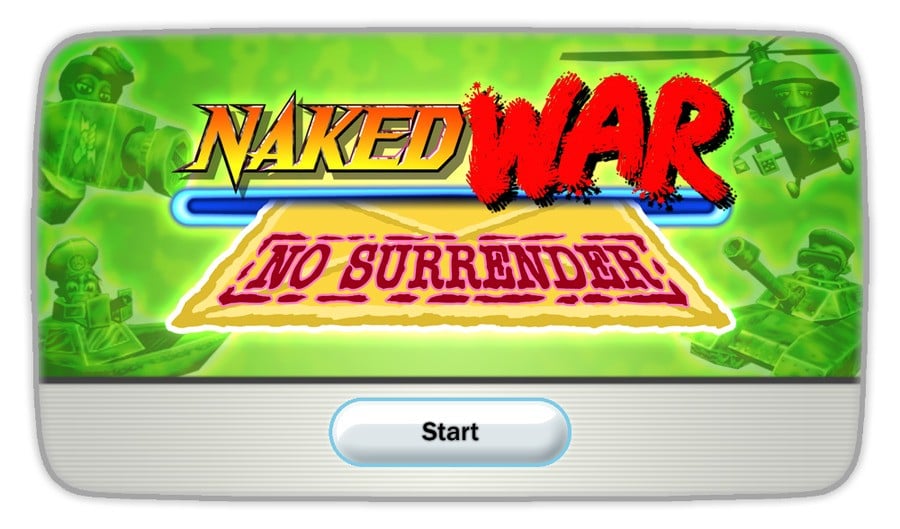
Interestingly, this wasn't the first time the Pickfords attempted to port Naked War to another platform. Ste Pickford was kind enough to talk to us about the proposed Wii version of the game – Naked War: No Surrender – and how it could have revolutionised multiplayer titles on Nintendo's insanely popular home console, as well as the reason it never went into development.
Nintendo Life: Naked War originally launched on the PC back in 2006. Can you tell us a little about the core gameplay? What made it unique compared to other strategy titles?
Ste Pickford: It's a squad-based asynchronous turn-based strategy game for two players, played remotely, with the ability to issue orders to all of your squad before committing.
We loved games like Advance Wars, Fire Emblem, Final Fantasy Tactics and Disgaea, but all of those games had an identical mechanic, which we hated, and that was that even though you had a squad of units to move each turn, you had to commit to each unit's individual move during the turn. Often, you'd move one unit, then realise it was in the way of another you wanted to move later in the turn, or you'd realise a slightly better approach midway through a turn, which required you to move all your units in a different way. Obviously those games are built around the instant commit per unit — and turn it to their advantage in some ways — but we thought it dull that all of those games did things in exactly the same way.
We wanted to try something different, so our approach was to let you set up planned moves for all four units in your squad, then when you're happy, you 'commit', send the turn, and all four units execute their orders simultaneously. This brings new strategies and pitfalls into play. It allows a new kind of ganging up on opponents with simultaneous attacks, but there's also a danger of planning your move badly and units getting into each other's way.
Also, to a certain extent, this multi-unit planning was a solution to the remote turn-based nature of the game. We wanted players to be able to send turns to each other without the requirement for each player to be online at the same time. We needed each turn to contain a decent chunk of gameplay, so we wanted to give the player the ability to plan moves for their whole squad without needing to communicate with the opposing team, then the opponent getting a decent amount of gameplay arriving in their inbox to respond to.
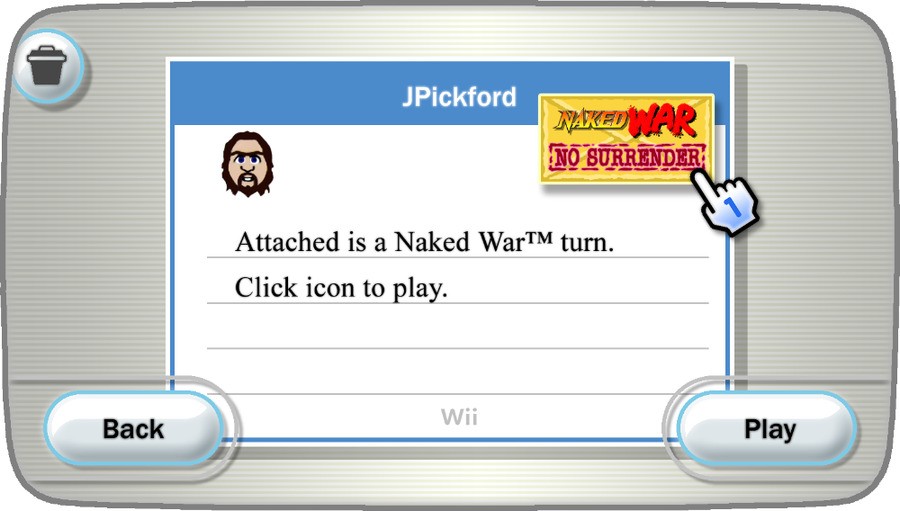
The other key feature of the game was that it was a two-player battle, which meant it had to be properly balanced, like Chess. Most of the games I've mentioned previously are against CPU opponents, which means the games can cheat by having lots of dumb cannon fodder enemies — or feed new enemies into the battle at pre-set points — to make each encounter work. If you've ever tried playing Advance Wars as a two-player game via the Game Boy Advance link-up cables, you'll know that it just doesn't work. There comes a point towards the end of the battle where one player is inevitably going to win, but there are still several turns to play before they've officially "won" the game, where they sweep up the remaining opponent's units. That's totally rubbish for the losing opponent to play through, and they usually just agree to give up and cancel the game.
Our target for Naked War was to make it so there was always a possibility for either player to come back and win the game right up to the last move to keep it interesting for both players, but at the same time, not do this via random swings — the game still need to be totally based on the best player winning.
That's where the "Naked" comes in. Each squad has four units, but you can never permanently lose a unit. The equivalent of "dying" means that unit loses their uniform — going almost Naked, with spotty underwear like in Ghosts 'n Goblins — until a turn or two later when they earn a promotion back to Private and can fight in the battle once more.
I think our design really worked, and games are always interesting right up until the last turn, but never feel unfair. The best player always wins, but there are lots of clever strategies or opportunities for mistakes that mean apparently losing players can come back and win.
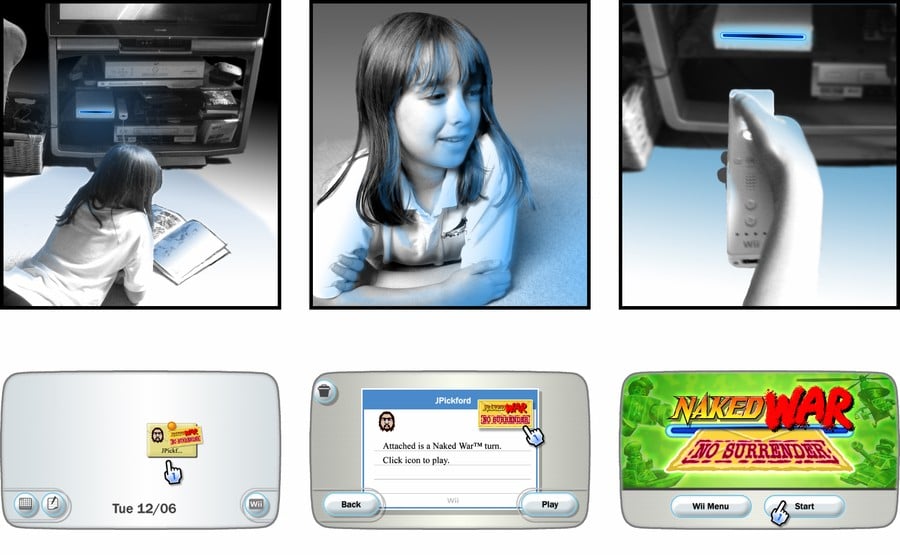
Naked War was the first game you made as indies. Was it a difficult process, releasing a game without the help of a publisher?
SP: It wasn't difficult to release the game, but there was a lot of work setting up the online turn-handling system. The game wasn't a commercial success though, so perhaps it would have been with a publisher to help. Then again, if we had a publisher, they would never have commissioned the game in the first place because it wasn't a clone of an existing hit, so I don't think there was any way it could have come into existence with a publisher.
You've described Naked War as one of the best games you've ever done — why are you so proud of it?
SP: I think it's the best-designed game we've ever made. It all works really well. The game design is really robust and naturally balanced. The game works on nearly any map you can design — it's not reliant on great level design, although great level design works brilliantly; the game would still be fun on a completely flat square island with no features.
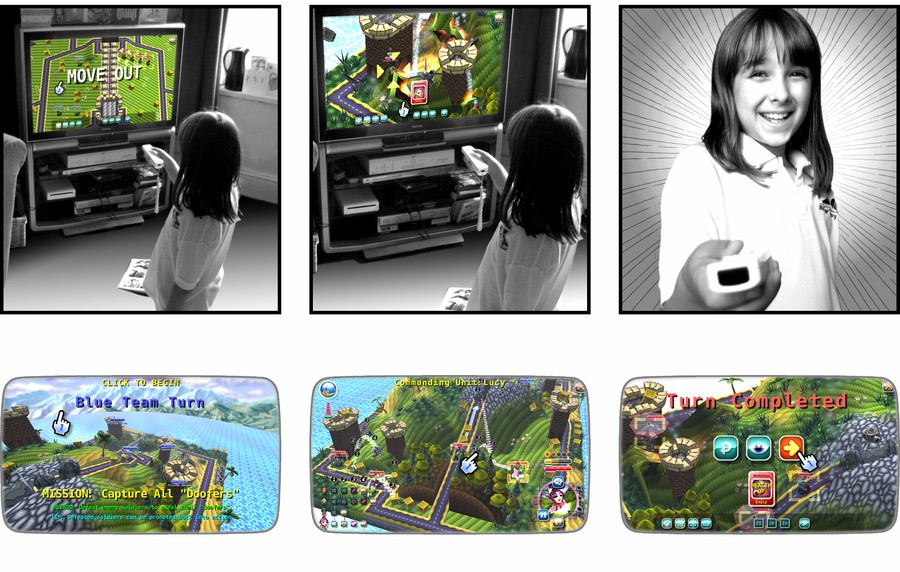
How did you see the game working on the Wii? How would it have differed from the original, and how would it have made use of the Wii Remote?
SP: The key thing for us about the Wii wasn't the Wii remote — although we'd make use of that like a pointer, which would have been an easy port for a mouse-based PC game — but the blue light on the front of the Wii, and the always-on internet connectivity the Wii had. This was a massively powerful feature that Nintendo barely used, but which would have been amazing for a game like Naked War.
Our idea was that players could send turns to each other at any time. Originally on PC, these turns took for form of email attachments and later website downloads. We could duplicate this exactly on the Wii. A player would send a turn to a Wii friend opponent. That turn would be sent to them as a Wii message. The blue light on the front of their Wii would light up, and instead of a dull notification, the message contained an actual chunk of gameplay. The attached turn would boot up the Naked War game on the receiving player's Wii and they could play the incoming turn, then respond with their own turn, which would be sent back to the original player in the same way. Nothing on Wii was doing anything like this. It would have been amazing!
When you pitched the title to Nintendo, what kind of response did you get?
SP: We made a great little pitch document. The front page of the pitch doc was a sheet of transparent acetate with just the Wii's blue light printed on it. This lined up with the second page, which was a picture of a Wii. The front sheet could be opened and closed to make the blue light on the Wii image appear to go off and on. We were stating that this was the game that was going to make the blue light really matter! We pitched the game, then finished off with a little comic strip showing my eldest daughter playing a mock-up of an incoming turn. We sent it to everyone we still knew at Nintendo.
The response we got was...absolute silence. Not even an acknowledgement. Nothing.
About six months later, a friend was going to visit Nintendo of America and kindly took a few more copies of our pitch and put them in the hands of the people he was meeting at Nintendo about a different project. Still nothing. Eventually, we tried to apply to become Nintendo developers. We were knocked back straight away because we didn't have a separate office from our home address — both John and I work from home.
We pleaded our case, but they wouldn't budge. So, that was the end of that!
You're currently reworking the game for iOS - what kind of improvements are you looking to include?
SP: There are two big jobs with the iOS version. Interface and business model. Touchscreen interfaces are really, really different from pointer control or button/joystick control. You can't just add touchscreen controls to an existing pointer-based interface, it doesn't work. So we've had to redesign and rebuild the interface from scratch, to be based around touch. We've also been able to make the UI look a lot nicer along the way.
The business model is a tricky one as well. We actually had an ahead-of-its-time business model with Naked War on PC when it came out. It was free-to-play, with (effectively) in-app purchases of 'challenges' which were the ability to start new games. That was a good system at the time, but not quite right for today. The game has to be free-to-play because the game is two-player only so we really need people to be able to challenge anyone on their friend list, including people who may not have the game yet. We're working on ways to sell new features, content, upgrades, and cosmetic enhancements within the game — including a couple of brand-new features — while still allowing players to experience the full game without having to pay.

